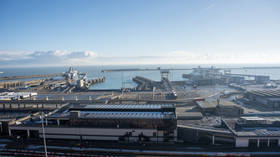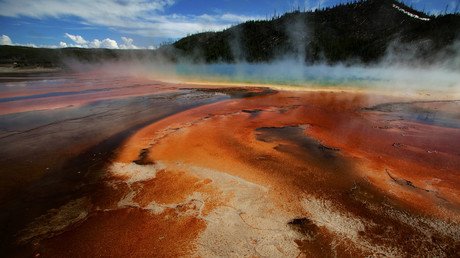‘Ideal precursors’ of LIFE found on Saturn’s icy ocean moon, scientists say
Deep under its frozen primordial oceans, Saturn’s moon Enceladus may conceal the building blocks for life, according to recent research. The finding raises exciting new questions about whether mankind is alone in the cosmos.
Scouring vast amounts of data transmitted by NASA’s Cassini probe, researchers discovered Enceladus was emitting “new kinds of organic compounds” in ice plumes ejected from its subsurface oceans. The substances could make “ideal precursors” for the “synthesis of biologically relevant organic compounds,” including amino acids, which make up proteins and play a litany of other roles in life as Earthlings know it.
The findings were published in a study in the Monthly Notices of the Royal Astronomical Society journal on Wednesday.
The researchers posited that hydrothermal vents under Enceladus’ oceans are responsible for pushing the compounds into the ice plumes analyzed by Cassini, and said if those vents operate under similar principles to those found on Earth, they could eventually transform the chemicals into amino acids.
Also on rt.com Alien probes spying on Earth? Scientist warns of possible ‘lurkers’ in our solar system“We don’t yet know if amino acids are needed for life beyond Earth, but finding the molecules that form amino acids is an important piece of the puzzle,” Nozair Khawaja, who headed up the research team, said in a press release.
If the conditions are right, these molecules coming from the deep ocean of Enceladus could be on the same reaction pathway as we see here on Earth.
Though Cassini’s nearly 20-year mission ended in 2017 – when NASA plunged the probe into Saturn’s atmosphere in a “grand finale” designed to gather as much new information as possible – scientists will likely study the data it gathered for decades to come.
Also on rt.com Running out of time? Earth could meet its end if Milky Way is ‘eaten’ by another galaxy… in 4.5 billion yearsThink your friends would be interested? Share this story!















